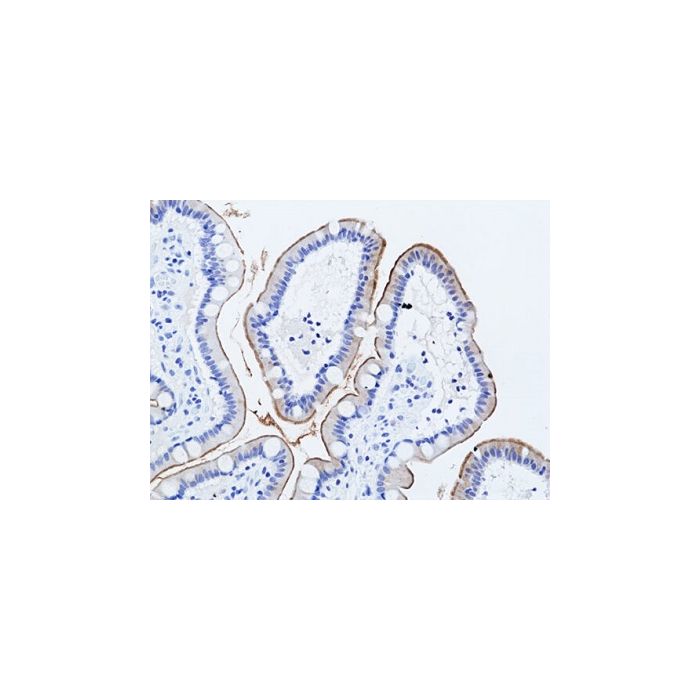Cookie Policy: This site uses cookies to improve your experience. You can find out more about our use of cookies in our Privacy Policy. By continuing to browse this site you agree to our use of cookies.
RevMab
anti-MUC-17 (Mucin-17) (human), Rabbit Monoclonal (RM517)

| Product Details | |
|---|---|
| Synonyms | Mucin-17; Small Intestinal Mucin-3 (MUC-3) |
| Product Type | Recombinant Antibody |
| Properties | |
| Clone | RM517 |
| Isotype | Rabbit IgG |
| Source/Host | Rabbit |
| Immunogen/Antigen | A peptide corresponding to residues near the C-terminus of human Muc17. |
| Application |
Immunohistochemistry (IHC): 1:100-1:200 |
| Crossreactivity | Human |
| Specificity |
This antibody reacts to human Muc-17 (Mucin-17). |
| Purity | Protein A purified. |
| Purity Detail | Protein A affinity purified from an animal origin-free culture supernatant. |
| Concentration | N/A |
| Formulation | Liquid. 50% Glycerol/PBS with 1% BSA and 0.09% sodium azide. |
| Isotype Negative Control | |
| Other Product Data |
Click here for Original Manufacturer Product Datasheet |
| Accession Number | Q685J3 |
| Declaration | Manufactured by RevMab Biosciences. |
| Shipping and Handling | |
| Shipping | BLUE ICE |
| Long Term Storage | -20°C |
| Handling Advice | Avoid freeze/thaw cycles. |
| Use/Stability | Stable for at least 1 year after receipt when stored at -20°C. |
| Documents | |
| Product Specification Sheet | |
| Datasheet |
 Download PDF Download PDF |
Membrane mucins have several functions in epithelial cells including cytoprotection, extravasation during metastases, maintenance of luminal structure, and signal transduction. MUC-17, contains an extended, repetitive extracellular glycosylation domain and a carboxyl terminus with two EGF-like domains, a SEA module domain, a transmembrane domain, and a cytoplasmic domain with potential serine and tyrosine phosphorylation sites. MUC-17 interacts via its C-terminus with PDZK1 and this interaction appears important for proper localization. MUC-17 probably plays a role in maintaining homeostasis on mucosal surfaces. Increased expression of this molecule has been reported in colon cancer.






